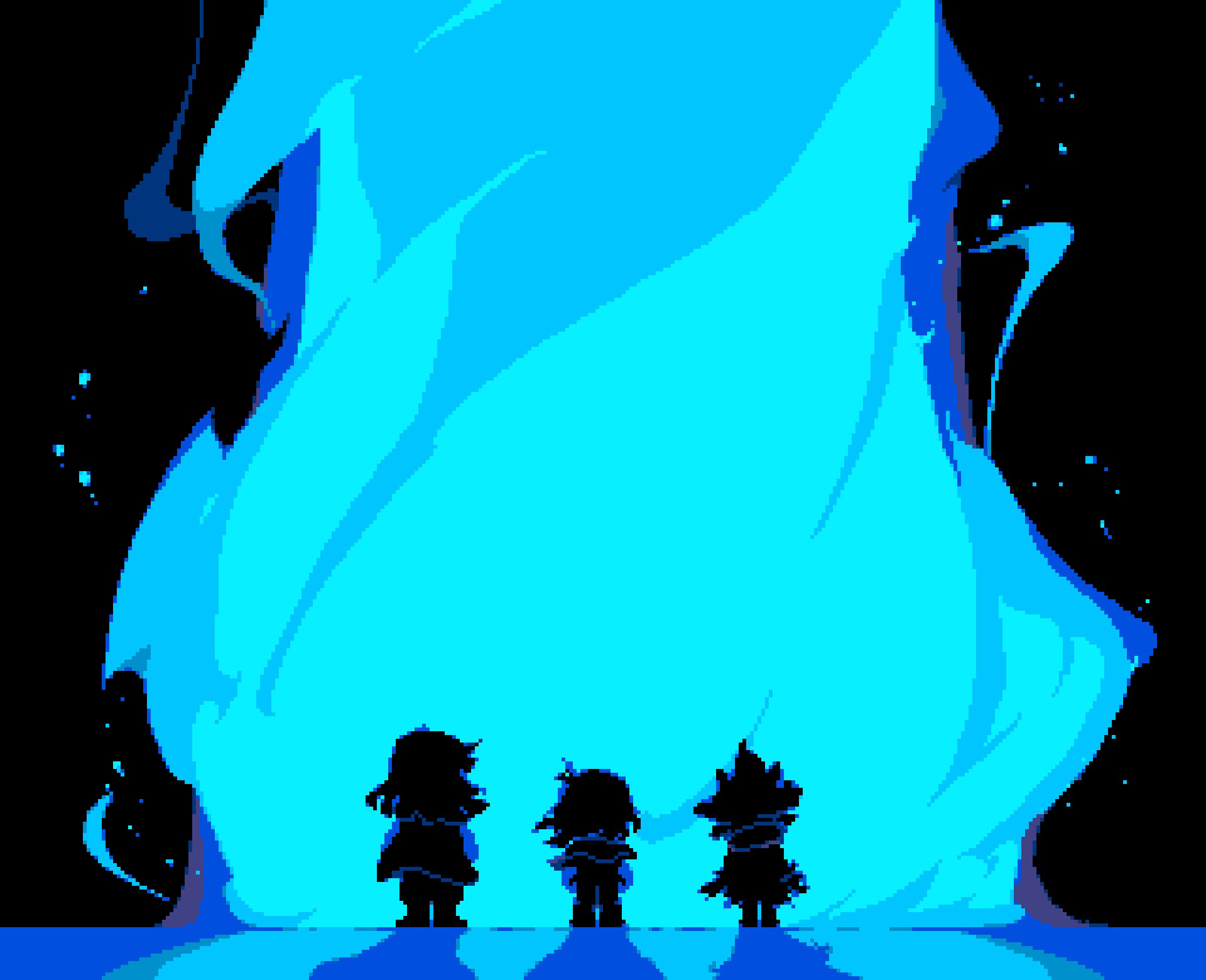Toby Fox Goes BIG SHOT with Deltarune Chapters 3 & 4
Water is wet, grass is green, the Pope is Catholic, and Toby Fox makes great games. Whether it’s Undertale or any of Deltarune’s first four chapters, I have Fox down as 5-0 – and a gleaming 5-0 at that.
Coming straight from your house, the long-awaited third and fourth chapters of Deltarune have been released to universal acclaim as we finally got our hands on a proper release of the game. Previously, Deltarune was only playable via a demo containing the game’s first two chapters. Now, we have Deltarune in all its for-sale glory. Jokes aside, it is one of the best value-for-money experiences out there. It’s £20.99 for the whole package. An experience which, including secret bosses and optional content, will take you at least 25 hours. It also includes the following three yet-to-be-released chapters as free updates. It’s no surprise that Game8 gave it a flawless 10 for its value for money.
But let’s take a step back and address the surprisingly difficult-to-answer question: what is Deltarune? Objectively, Deltarune is a whimsical narrative-driven RPG set in an alternate but distinctly linked universe to the uber-popular Undertale. You’ll explore eccentric dark worlds, sealing the fountains which give them form and disrupt the balance of Light and Dark, threatening to bring about ‘The Roaring’ – a Lovecraftian style end of the world.
Behind the charming, quirky, appealing characters and worlds lies something far more sinister
Subjectively, however, Deltarune focuses on agency and the extent to which our choices matter. As players, we exist separate from our character, Kris, who actively rebels against our decision-making. Behind the charming, quirky, appealing characters and worlds lies something far more sinister. With the separation between Kris and ourselves (the voice that sporadically speaks to us), the fourth wall breaking secrets, and hidden narrative paths, you can end up feeling more like a puppet on a string than someone forging their own destiny. There are some darker undertones hidden beneath the cheery surface. I’ll leave the lore talk here, but let it be known that Deltarune has a fascinating, albeit cryptic, narrative that I eagerly await more of when Chapter 5 releases next year.
Deltarune’s newest chapters address one of my main qualms with its initial sections: the pacing. The first two chapters have long stints of concentrated dialogue with sparse-to-no gameplay, which, regardless of the witty, humorous writing, do drag slightly. However, as the earlier chapters laid the foundations for the wider narrative and character arcs, I excused these sections as a necessity, and this issue has been addressed in the newly released chapters, where the pacing is far less frustrating.
The game’s initial chapters introduced some extremely likeable characters, from Ralsei to Lancer, Nubert to Spamton (these characters manage to engrain themselves in the head of anyone who plays this brilliance). Still, none of them can beat Chapter 3’s new addition: Mr (Ant)Tenna, or Tenna for short. A sentiment CRT, Tenna cracks whips like an ’80s gameshow host and dances like no one is watching; he might be my favourite character across all the chapters. We get to enjoy participating in his game show, which involves playing a game inside of a game, cooking, starting our own band, and an intense, surprisingly tough fight with a water cooler. Refreshing gameplay.
Perhaps the reason I enjoyed Chapter 4 so much is because of how much more serious it takes itself
Speaking of favourites, Chapter 4 is currently Deltarune’s peak. Set in a church, it has a beautiful atmosphere and is the most visually interesting area we have explored thus far. Although I was initially underwhelmed by the score, the chapter’s soundtrack has grown on me exponentially since my first playthrough, even to the extent where I’d say it has the best musical offerings in the whole game – although that is no doubt a controversial take. Perhaps the reason I enjoyed Chapter 4 so much is because of how much more seriously it takes itself. It retains humour and Fox’s trademark wholesome moments but scales up the intensity and threat in a manner we haven’t seen since Undertale, with the climbing sequences and final staging particularly coming to mind. However, it’s worth experiencing it yourself, so I won’t spoil too much here. While it’s likely not for everyone, Chapter 4’s brilliance highlights how Deltarune is only improving over time.
So far, Deltarune still isn’t quite as good as Undertale, but that’s by no means a slight. As I expressed in my retrospective for the game, Undertale is “one of, if not the, greatest game of all time”, but to its credit, every time Deltarune receives new chapters, it gets closer. Although I doubt it will be able to surpass its predecessor, Deltarune is proving to be a stunningly captivating, remarkably thrilling, and all-around brilliant experience – and we’re only 4/7 of the way through this tour de force.
Shortly after we experienced the newest of Deltarune’s chapters for the first time, a friend and I discussed our thoughts, and we reached the same conclusion: Toby Fox was born to make sensational video games. He may prove the existence of destiny. While I doubt he’ll ever read these words, I’d like to thank him for some of the most brilliant experiences I’ve had with a controller in my hands. If you haven’t experienced his genius yet, do yourself a favour and treat this as your sign: you certainly won’t regret it.

Comments